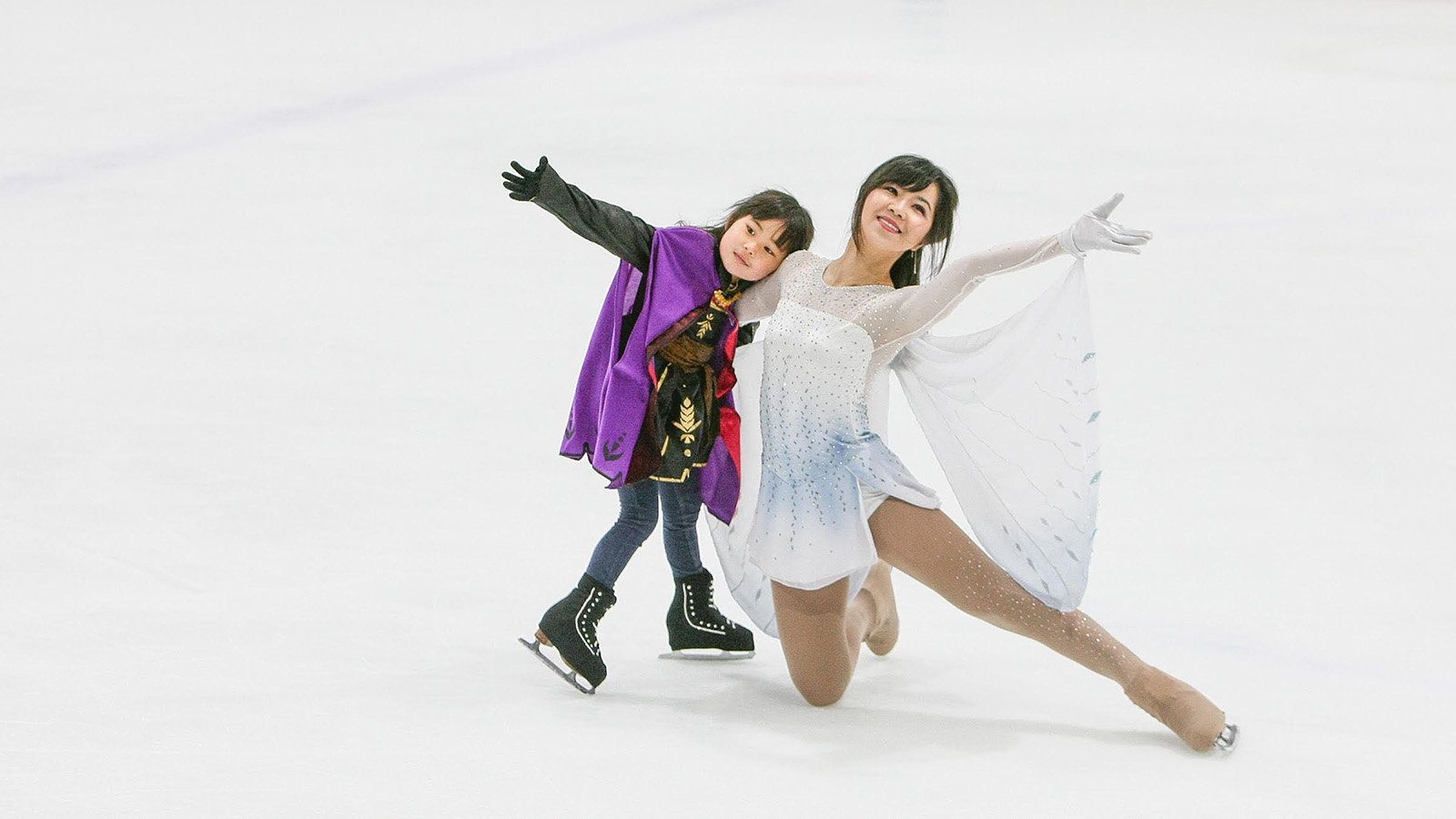By Kama Stigall
According to a recent report by the Alzheimer’s® Association, more than 7 million Americans aged 65 and older are living with Alzheimer’s disease. By the year 2050, this number is predicted to climb to more than 12 million.
Ashley (Xu) Chen, PhD, an associate professor at the University of California at San Diego (UCSD) and adult skater, believes figure skating can help people suffering from the disease. She wants others to see the positive connection between the sport and how it can improve patients’ overall wellbeing.
Chen’s own skating journey began when she relocated to San Diego.
“It was January 1, 2019, and I took my 4-year-old daughter, Melody Hui, to the rink for a New Year Day’s skate at San Diego Ice Arena, just for fun,” she said. “Neither of us had skated before, but we had a blast in our rental skates that day.”
Shortly thereafter, Chen enrolled her daughter in a Learn to Skate USA class.
“As I was waiting for Melody during her classes, I was shivering in the cold and wondered, ‘Hey, what if I join her on the ice?’”, she said. “I took an adult beginner class and realized that I found my favorite sport. I never considered myself athletic, and finding the passion and motivation to learn a new sport was just unbelievable.”
Chen, who is a member of the San Diego Figure Skating Club and trains at both the San Diego and the UTC Ice Sports Center, has progressed quickly through the adult testing ranks. She passed her pre-bronze test in five months and is competing at the adult silver/bronze level.
In her professional life, Chen works in the Department of Neurosciences at UCSD, specializing in Alzheimer’s disease research.
“I wholeheartedly believe that practicing a sport like figure skating is hugely beneficial to one’s health, especially when it comes to slowing aging and preventing age-related health problems,” she said. “Specific to Alzheimer’s disease and other neurodegeneration, some of the known risk-modifying factors include cognitive engagement and metabolic fitness. Training your brain to form those neurocircuitry and strengthen the neuromuscular connections, alongside building muscles, bones and promoting cardiovascular function, are key to maintaining a healthy brain during aging.”
In addition, the mental benefits of skating are abundant, Chen said.
“Psychologically, having a creative hobby like figure skating provides an emotional outlet and stress management tool, which is also important for mental health and overall well-being,” she said.
While skating can provide many benefits for individuals suffering from Alzheimer’s, it is also helpful for people of all ages and life stages. Chen and her daughter are real-life examples of how the sport can serve as a great bonding activity for families.
“It’s a shared hobby that is constantly growing and evolving,” Chen said. “I hope our shared love of this sport has many years to come. It’s a beautiful memory that we create together to cherish for life.”
Chen’s daughter competes in the Showcase category. The 11-year-old draws inspiration from 2022 U.S. Olympic Team gold medalist Vincent Zhou.
“I like that he always tries his best, even when life gives him rough times,” she said.
Hui is grateful for how skating has deepened her relationship with her mother.
“It means a lot to me and makes me feel super special and happy that my mom is on the ice with me, and sharing the experience with me,” Hui said.
Chen encourages anyone who is interested in figure skating, regardless of their age, to give it a try.
“There is no such thing that you are too old for skating,” Chen said. “Compared to younger skaters, we bring maturity to the ice, have more freedom and less competitive pressures; therefore, we can express our understanding of the world through those blades.”
The benefits are endless, she said.
“It helps you build muscle strength and flexibility, and it’s just as good for your brain fitness,” Chen said.
The intersection between skating and science is especially meaningful to her.
“I am deeply grateful to figure skating,” Chen. “It’s the other side of me beyond my profession as a scientist and professor. It’s my ‘me time,’ my fitness routine, my meditation and my therapist.”


